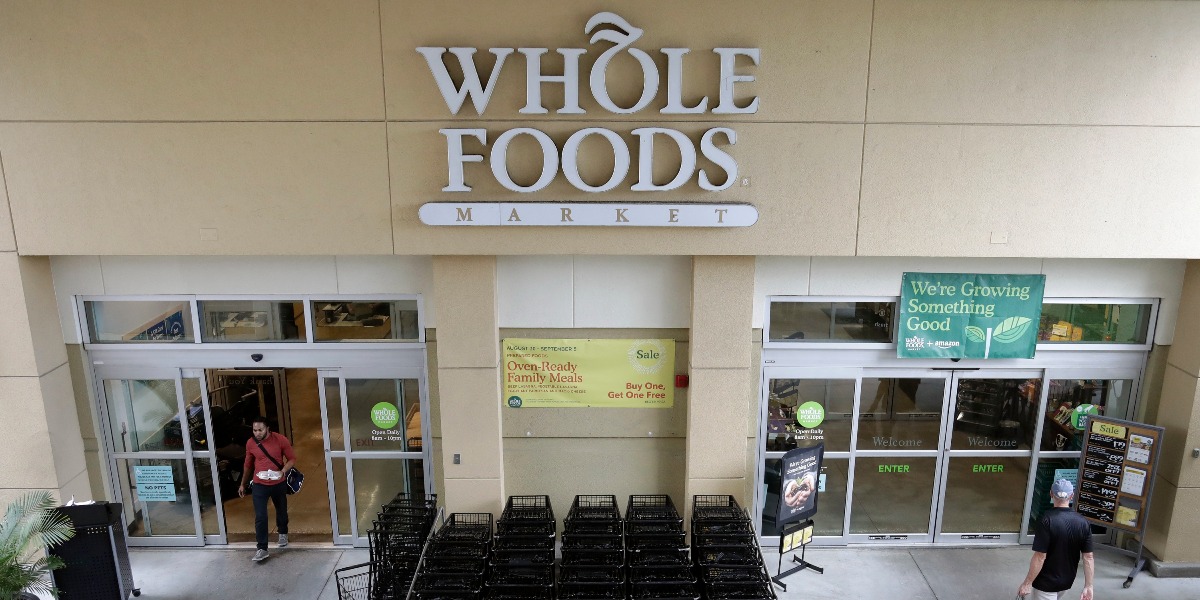According to a report by the Washington Post, prices at Whole Foods grocery stores aren’t down all that much since its acquisition by online giant Amazon.
Videos by Rare
With Amazon at the helm of Whole Foods for a little over a month now, research firm Gordon Haskett tracked a variety of products and found an overall price decrease of only about one percent. The firm followed prices of 110 items over five weeks at one New Jersey Whole Foods location.
RELATED: Consumers are Already Benefitting From Amazon Buying Whole Foods.
Discounts on things like avocados and milk were offered right after Amazon bought the grocery chain, but those prices have since climbed back up, with some foods now more expensive than when Amazon took the reigns (frozen food was up seven percent higher than when Amazon bought whole foods at the time of the study).
Some items did fall in price, like bread and bakery items and beverages, which fell an average of 6.8 and 2.8 percent, respectively. Grocery industry consultant Jan Rogers Kniffen says that’s no accident.
“The whole game is that you want the 100 most recognizable things — milk, apples, bananas — to be cheaper,” Kniffen said in an interview with the Post. “If you can do that, you can build a perception that the whole store is competitively priced.”
Data pulled from the app Foursquare appears to show a 25 percent increase in traffic to Whole Foods stores after Amazon’s announcements of price cuts on everyday items. People heard about the drop in cost, and decided to give it a shot, even if they didn’t usually shop there due to its ‘Whole Paycheck’ nickname.
RELATED: Whole Foods, Amazon Team up to Make Healthy Food More Affordable.
Amazon’s strategy is working. They’ve already made around $1.6 million since the takeover, according to data from analytics firm One Click Retail.
While some prices went down and some went up since the acquisition, about 70 percent of them haven’t changed. Supermarket Analyst David J. Livingston says the grocery industry often makes up for discounts in one area by raising prices in another, so “when a grocer claims to have lowered 5,000 prices. What they don’t tell you is they raised prices on 45,000 items to pay for it.”
Looks like the “whole paycheck” nickname is going to stick.



